Library of Congress Cataloging-in-Publication Data
Names: Hankin, Kelly, author.
Title: Documenting the American student abroad : the media cultures of international education / Kelly Hankin.
Description: New Brunswick, New Jersey : Rutgers University Press, 2021. | Includes bibliographical references and index.
Identifiers: LCCN 2020010751 | ISBN 9781978807686 (paperback) | ISBN 9781978807693 (cloth) | ISBN 9781978807709 (epub) | ISBN 9781978807716 (mobi) | ISBN 9781978807723 (pdf)
Subjects: LCSH:Foreign studySocial aspects. | International educationSocial aspects. | Mass media and educationUnited States. | Mass mediaUnited StatesInfluence. | Education and globalization.
Classification: LCC LB2375 .H365 2021 | DDC 370.116dc23
LC record available at https://lccn.loc.gov/2020010751
A British Cataloging-in-Publication record for this book is available from the British Library.
Copyright 2021 by Kelly Hankin
All rights reserved
No part of this book may be reproduced or utilized in any form or by any means, electronic or mechanical, or by any information storage and retrieval system, without written permission from the publisher. Please contact Rutgers University Press, 106 Somerset Street, New Brunswick, NJ 08901. The only exception to this prohibition is fair use as defined by U.S. copyright law.

The paper used in this publication meets the requirements of the American National Standard for Information SciencesPermanence of Paper for Printed Library Materials, ANSI Z39.48-1992.
www.rutgersuniversitypress.org
Manufactured in the United States of America
As an undergraduate attending a large public university in the late 1980s, I had little awareness of study abroad. Though my university probably had a study abroad office, nobody I knew ever used it. If there were promotional brochures and fliers about study abroad options, I certainly didnt register them. Leaving the country to attend college abroad seemed about as likely as traveling to the moon. What little I knew about study abroad came from a series of instructional videos regularly screened in my French class. Each week, I would eagerly anticipate viewing an episode of French in Action, an educational videocumromantic comedy in fifty-two installments. Developed in 1987 by a Yale professor and funded by the Annenberg Foundation and the Corporation for Public Broadcasting, French in Action taught the French language through the story of Robert, a young American man studying abroad in France, and Mireille, his French love interest. While I dont recall much about either Roberts study abroad experience or his romantic escapades with Mireille, I vividly remember the way Mireille was overtly sexualized by the camera, which slowly lingered over the contours of her breasts and legs. As this was before my feminist awakening, I confess I was titillated rather than outraged. But over at Yale, the French language students werent putting up with it; in 1990 they filed a sexual harassment grievance with the university claiming French in Actions sexism interfered with their successful learning.
Today, at the private liberal arts university where I teach, students would be hard-pressed not to know about study abroad. Like many American liberal arts universities, the University of Redlands extols the virtues of study abroad and provides numerous opportunities for students to travel as part of their education. Moreover, my students exist in a radically different media landscape than I did as an undergraduate, before the widespread adoption of the internet. In contrast to my experience, they have an extensive array of visual resources about study abroad at their fingertips. No longer relegated to undetected promotional fliers or sexist educational videos, media about study abroad now comes in a range of forms, from film and television to digital video and vlogs, and circulates widely in the public sphere. This media is produced by a broad range of stakeholders, shaped through a wide variety of documentary modes, and screened in radically diverse contexts, from institutional conferences to foreign bedrooms. Documenting the American Student Abroad: The Media Cultures of International Education is about this new media culture and how it both shapes and reveals contemporary understandings of the value and practice of study abroad.
As this media culture serves to advance the values and mission of the study abroad industry, I argue that it functions as a useful cinema, what Haidee Wasson and Charles R. Acland describe as films that are harnessed by institutions and their agents to satisfy organizational demands and objectives, that is, to do something in particular.
To understand useful cinema and the institutional facets of cultural life, Wasson and Acland argue for the necessity of situating it within the intersection of film form, audiovisual technologies, and institutional mandates and spaces. My own analysis of study abroad media cultures is particularly indebted to this concept. I understand study abroad and media as partners in the creation of a useful media that is produced at the intersection of study abroad institutions and their agents, discourses and orthodoxies around international education, economic exigencies and strategies, technologies and ideologies of vision, mediated travel and touristic practices, and media histories and practices. Together, these disparate and often ideologically incompatible components form the tapestry of study abroad media culture. This is a media culture that serves or responds to the institutions, ideologies, and practices of study abroad rather than primarily those of entertainment.
What is the media culture of study abroad? It is first and foremost media that is produced by stakeholders in the practice of international education. Managerial theory defines stakeholders as groups and individuals who can affect (or be affected by) an organization. While this heterogeneity means that stakeholders do not always agree on organizational practices and goals, they all share an investment in their outcome. Study abroad media, then, is media produced by the groups and individuals invested in the practices and values of study abroad. This includes program vendors, thought leaders, students, parents, the U.S. government, and the concerned public.
Thus, study abroad media does not typically include commercial narratives about Americans studying abroad. While they may contribute to cultural understandings of study abroad, their stakeholder relationship to the institution of study abroad is arguably minor, neither overtly concerned with nor speaking to its mission. Commercial representations of American students abroad often showcase engagement with foreign cultures in ways that are fundamentally at odds with the official values, practice, and messaging of study abroad, which typically revolve around the concepts of cultural immersion, meaningful intercultural communication, and global citizenship. Instead, as commercial representations of Americans studying abroad are most often situated within coming-of-age comedies or horror/thriller films, intercultural contact is generally framed by chaos, sexual desire, or fear. Therefore, the institutional values central to study abroad are more often upended than advanced. For example, in coming-of-age comedies such as


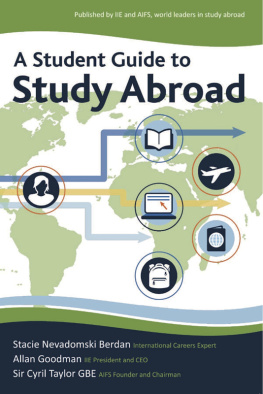

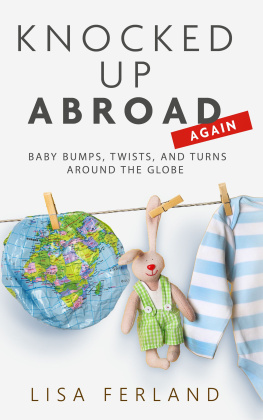
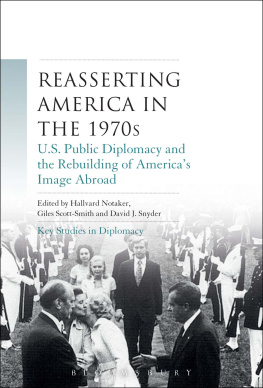
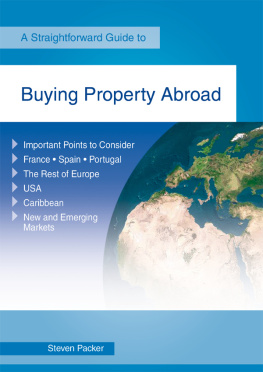

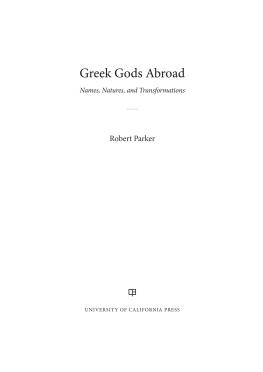
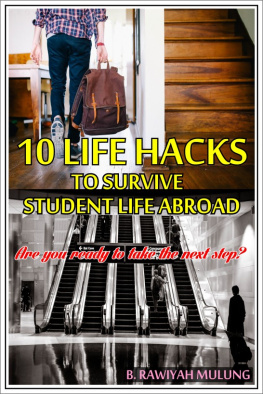


 The paper used in this publication meets the requirements of the American National Standard for Information SciencesPermanence of Paper for Printed Library Materials, ANSI Z39.48-1992.
The paper used in this publication meets the requirements of the American National Standard for Information SciencesPermanence of Paper for Printed Library Materials, ANSI Z39.48-1992.